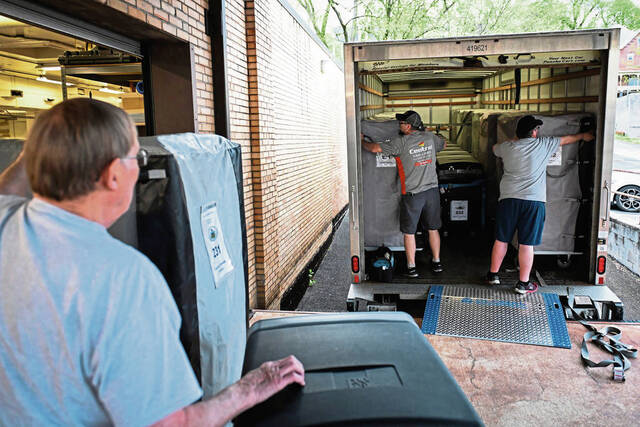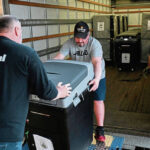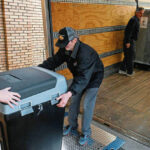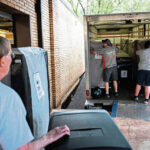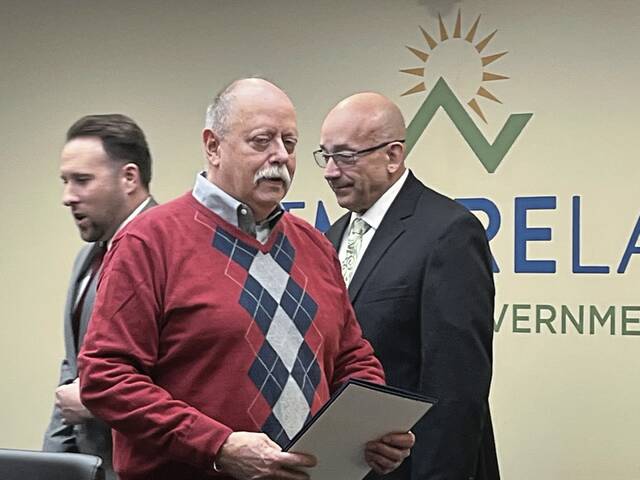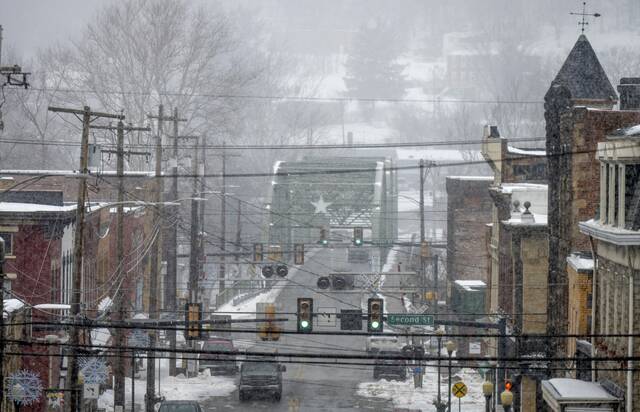Adam Halfill’s job description doesn’t include heavy lifting.
But when Halfill reports to work Tuesday as the judge of elections at Greensburg Hose Company No. 3, he understands the job could involve the use of a little muscle.
“Voters have to come down four or five steps to get into the voting area,” said Halfill, who has served as judge of elections at the city’s 5th Ward precinct since 2022. “We can open the back doors on the ground level, but there is a slope and a step there, too. We had one woman who came in a wheelchair, and we had to carry her up.”
His precinct is one of 16 in Westmoreland County that is not accessible to disabled voters. Corrective measures including ramps, signs and call bells are used at 81 additional precincts to allow them to meet requirements of the Americans with Disabilities Act, according to Election Bureau Executive Director Greg McCloskey.
Westmoreland County officials confirmed last week that about 5% of the county’s 306 voting precincts do not meet ADA standards. Federal law requires all voting precincts used during federal elections to be ADA compliant, but there are exceptions under state guidelines, according to officials.
An advisory issued in September by Pennsylvania’s Department of State, which oversees elections, advised elections officials that counties can use polling locations that are not accessible to disabled voters only if it is not reasonable to do otherwise, and if no other options are available.
“When we have voting places that are not accessible, it is disenfranchisement. Different counties are doing better than others,” said Philip Hensley-Robin, executive director of Common Cause Pennsylvania, a nonpartisan good government advocacy group. “We recognize it is sometimes the case there are a very limited number of venues in a precinct that can meet the guidelines. But we urge counties to try and plan ahead and reach out to a wider range of potential locations.”
State officials confirmed the department is aware there are voting precincts in Westmoreland County that aren’t ADA compliant. They referred all questions to the agency’s written guidelines.
Requests asking for the number of noncompliant voting locations throughout Pennsylvania went unanswered.
Allegheny County spokeswoman Abigail Gardner said all 1,300 polling locations in that county are accessible to disabled voters.
“It is the law. They all have to be ADA accessible,” she said, noting some of those locations have inconvenient entrances at the backs of the buildings but they meet requirements spelled out by the act.
Westmoreland County’s election board this year approved the relocation of 11 precincts in advance of the April primary, including several that are not ADA compliant.
Problematic precincts
Remaining inaccessible precincts include locations in Allegheny Township, Avonmore, Bell Township, Greensburg, Hempfield, Jeannette, Laurel Mountain, Loyalhanna, Mt. Pleasant Borough, North Huntingdon, North Irwin, Rostraver, South Huntingdon, Vandergrift, West Newton and Youngstown.
The issues at each location vary, McCloskey said. Most are related to conditions in the parking lots near the buildings where voting occurs, such as gravel and grass surfaces that make wheelchair access difficult.
Other locations, including the Allegheny Township McKees precinct at Allegheny Presbyterian Church, has six steps up into the building.
“There have been no complaints, and if we have to, we can carry people up the steps. We also have a device we can take out to their cars to let them vote,” said Albert Mehal Jr., who has worked the past three years as judge of elections at the McKees precinct. “One way or another, we’ll get them in to vote.”
Steps also present an issue for the small Van Meter precinct in Rostraver, which is Westmoreland County’s lone polling location that operates in a private home.
Voters must traverse several steps to get to the porch in front of Kathleen Slomiany’s home before they enter the living room to vote.
“We’ve had no problems with handicapped voters, and we do our best. We have a board to help people go up the steps,” Slomiany said.
Westmoreland County officials and Slomiany agreed last February that 2024 will be the last year her home is used as a polling location, she said.
McCloskey said he wasn’t initially aware of the scope of Westmoreland County’s accessibility issues until he was asked about it last week.
New research revealed the county’s list of polling locations published this spring and posted to the county’s website was inaccurate.
An updated list was posted late last week to reflect all 16 inaccessible precincts, he said.
Meanwhile, work has begun to reduce that number before the November election.
“We will concentrate on finding new places for those 16 that are not accessible,” McCloskey said.




